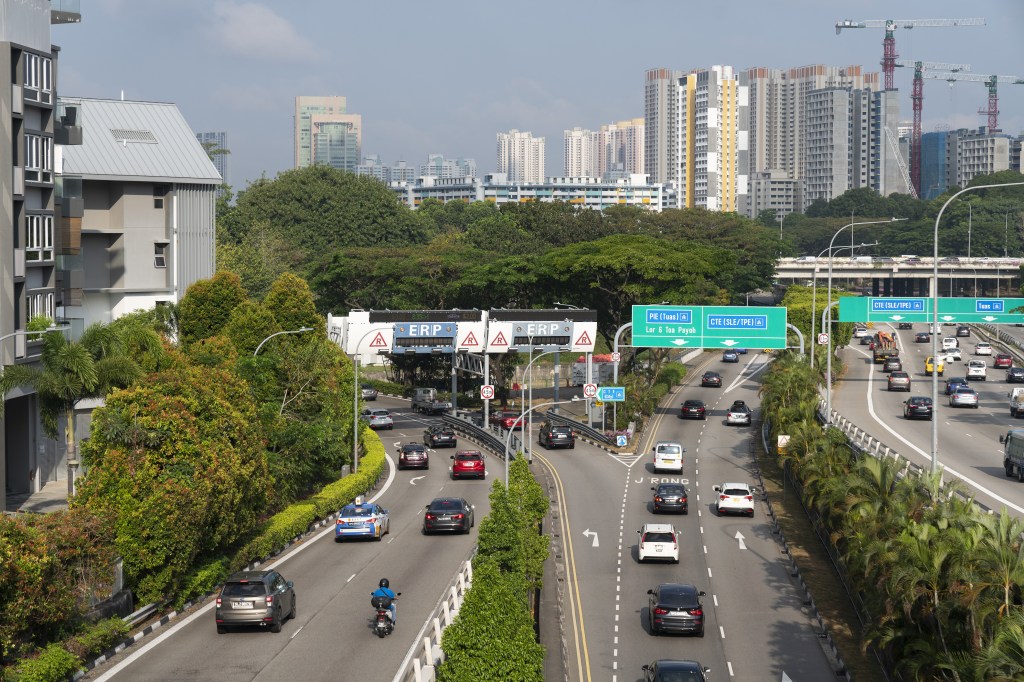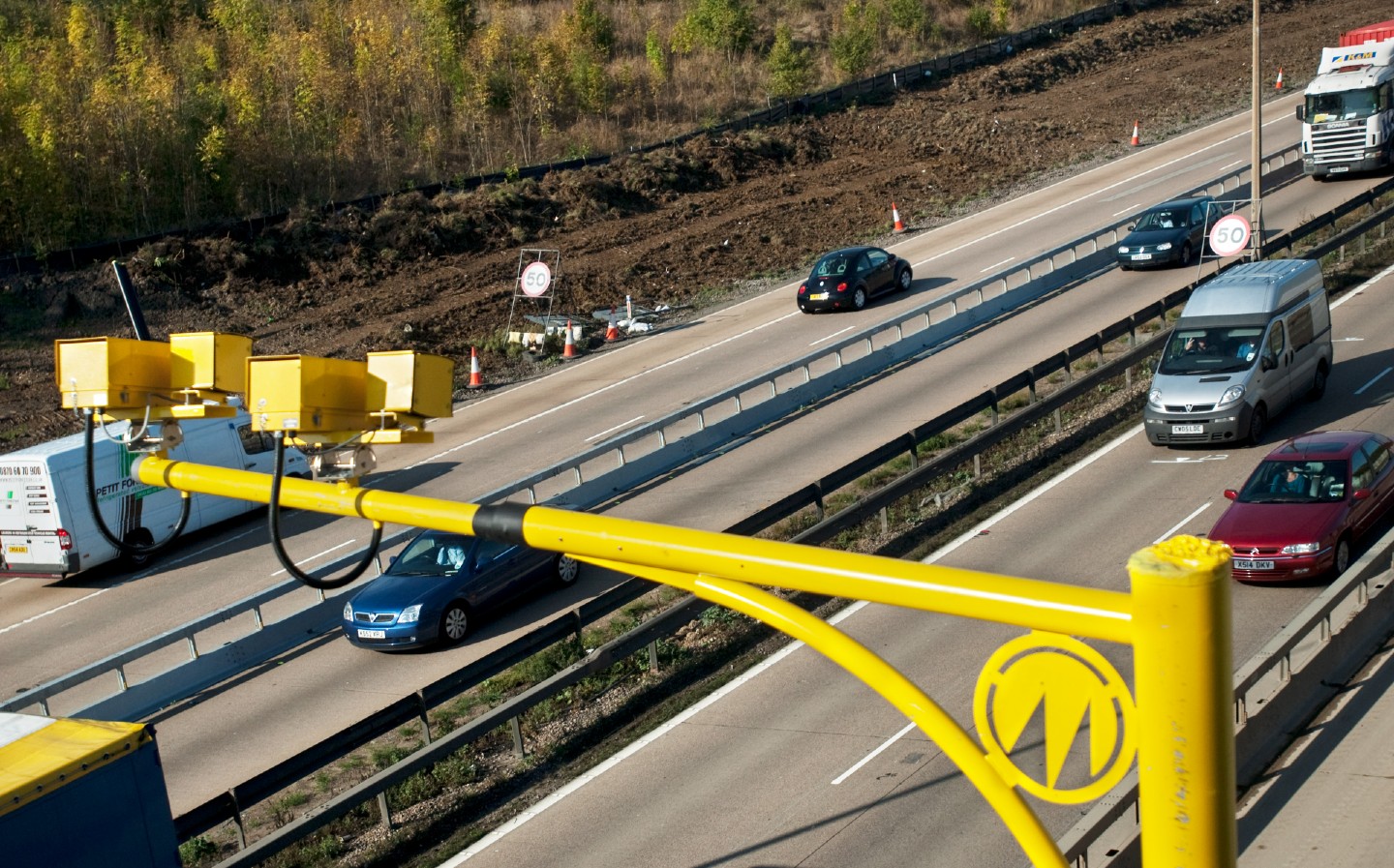Urgent need for pay-per-mile road pricing, MPs say
Government cannot be trusted to set up such a system, say campaigners
THE UK must urgently introduce pay-per-mile road pricing to make up the £35bn budget shortfall created by the switch to electric cars, MPs have said.
In its latest report released today, the cross-party Transport Select Committee warned that unless the UK began to act now on the issue of road pricing, it would stand to lose both an annual £28 billion in fuel duty as well as £7 billion in Vehicle Excise Duty (VED), creating a budget black hole which would need to be filled by a rise in income taxes.
The committee has recommended that road charges entirely replace fuel and vehicle excise duties rather than being added to them, and the system should be revenue neutral, it said, with motorists paying the same or less than they do currently.
Taking into account those drivers who need their vehicles more than others, the report has recommended that any legislation in the area considers the impact on “vulnerable groups” (disabled drivers, for example) or those “in the most rural areas”.
The committee called for the system to be “dynamic” meaning that charges could vary depending on the time of day, the area in which people are driving and the type of vehicle being driven with the aim of modifying the future behaviour of drivers.
No new system must undermine any shift towards increased public adoption of active travel or public transport methods, the committee added.
Satellite tracking to monitor car use
Underpinning such a system would be global positioning satellite-based telematics, allowing drivers’ movements to be tracked. The report has insisted that a road pricing regime based on GPS tracking “ensures that any data capture is subject to rigorous governance and oversight and protects privacy”.
The committee has called for the Treasury and Department for Transport to set up a body to begin developing a road pricing scheme by the end of 2022.
“Road pricing should not cost motorists more overall”
“It’s time for an honest conversation on motoring taxes,” said the committee’s chairman, Huw Merriman, MP. “The Government’s plans to reach net zero by 2050 are ambitious. Zero emission vehicles are part of that plan.
“However, the resulting loss of two major sources of motor taxation will leave a £35 billion black hole in finances unless the Government acts now — that’s 4% of the entire tax-take. Only £7 billion of this goes back to the roads; schools and hospitals could be impacted if motorists don’t continue to pay.”
A national scheme to avoid ‘unfair patchwork’
Merriman said innovative technology could deliver the scheme nationwide, with costs per journey based on “the amount of road and type of vehicle” used.
“[It would be] just like our current motoring taxes but, by using price as a lever, we can offer better prices at less congested times and have technology compare these directly to public transport alternatives. By offering choice, we can deliver for the driver and for the environment.
“Road pricing should not cost motorists more overall, or undermine progress on active travel.”
The chairman added that work should begin immediately because the situation is urgent and new taxes, especially those based on new technology, take years to introduce.
He added that a national scheme, rather than ones set up by local authorities, would “avoid a confusing and potentially unfair and contradictory patchwork of local schemes”. If local solutions are introduced, a national scheme would be too difficult to introduce retrospectively, he said.
Singapore as an example of road pricing
Last year, a report by the Tony Blair Institute for Global Change think-tank said that unless the budget shortfall was made up by road pricing, income tax would need to increase by approximately 6p in the pound by 2040.
A number of countries around the world operate road pricing systems, from toll roads to Singapore’s advanced system of cameras on overhead gantries.

In Singapore, the price for driving on the roads depends on the time and location, with the charge for using a particularly busy section of road during peak times being higher than on a less used section during the middle of the day.
Drivers’ registration plates are linked to their bank accounts, so the appropriate sum is automatically deducted when people take to the roads there. The main aim of Singapore’s system, however, isn’t revenue generation so much as congestion reduction, and opinions are divided on whether, in that respect, it has actually worked or not.
Resistance to pay-per-mile road pricing in the UK
The introduction of such a system in the UK already faces an uphill battle, both in terms of privacy concerns and motorists’ perception of the idea.
When the government first mooted road pricing in 2005, the idea faced a huge backlash forcing the government to scrap the proposal following the submission of a petition signed by 1.8 million people.
As more electric cars hit the road, though, opinions may be shifting.
“Those smug comfortably well-off electric vehicle owners and evangelists are in for a shock,” commented FairFuelUK, a campaign group. “Their recent years free use of UK’s roads, with their heavyweight particulate generating chariots, is to come to an end, very soon.
‘Those smug comfortably well-off electric vehicle owners and evangelists are in for a shock’
“The out of touch with road users government, so influenced by Lycra class Spads (special advisers) and their vocal minority cycling lobby, has shot itself in the fiscal foot by not having any real plans to replace the fifth-largest income to the Treasury, in their hell-bent myopic push for us all to drive electric.”
A fair system
It added: “Any new road user tax must be fair and equitable and more of these punitive tax revenues must be hypothecated for new roads and their upkeep, too. It is vital that existing diesel and petrol vehicle owners pay absolutely no more than under the current fuel duty process, with the haulage industry getting, preferential rates to help reduce inflation and aid economic recovery.”
FairFuelUK also said that the government should not be trusted to deliver a fair, equitable system of road pricing, a point with which AA president Edmund King, agrees.
“While our polls show many drivers accept the principle of ‘pay as you go’, they don’t trust politicians to deliver a fair system,” he said.
“Hence we agree with the committee that any new taxation proposals should be put forward by a body at arm’s length to government and any new scheme should be revenue neutral, and we believe the charges should be set independently.
“Whatever system put forward must be equitable or it will back-fire.”
King also questioned the committee’s assertion that road pricing should totally replace fuel duty and VED, and instead argued for a transition period, which would continue to encourage the take-up of electric vehicles.
More complicated than it might appear
A fair road pricing system is not a straightforward option where tax-raising is concerned, said Kevin Pratt, a motoring and finance expert from financial guidance platform Forbes Advisor.
“The government would need to decide how to apply the levy. Would everyone get an allowance of ‘free’ miles, as suggested by the AA and others? Would vehicles then be charged according to their weight, with larger cars, vans and lorries paying more? Would popular routes be more expensive, and might drivers be charged more to drive in rush hour?
“Then there are potential exemptions. Should food deliveries be charged at a lower rate? What about people who have no option but to commute — should they be taxed for going to work? What about people who drive as part of their job, such as care providers visiting people in their homes?
“These are the questions the government will need to consider — and it will need to be ever mindful of the possible unexpected consequences of such a dramatic change in the way road usage is governed.”
Tweet to @ST_Driving Follow @ST_Driving
Related articles
- If you were interested this article about MPs calling for the urgent introduction of pay-per-mile road pricing to make up for the £35 billion shortfall in fuel tax as we switch to electric cars, you may also want to know that drivers in London could be the first to face such charges
- And don’t miss this story about pay-as-you-drive car insurance now being offered in UK
- If you’re interested in electric cars, we have the ultimate guide to all the EVs on sale and those being introduced this year
Latest articles
- Watch new Porsche 911 GT3 smash Nürburgring record for manual cars
- Skoda Elroq 2025 review: Czech carmaker can’t seem to miss with its electric family cars
- Five best electric cars to buy in 2025
- Should I buy a diesel car in 2025?
- F1 2025 calendar and race reports: The new Formula One season as it happens





